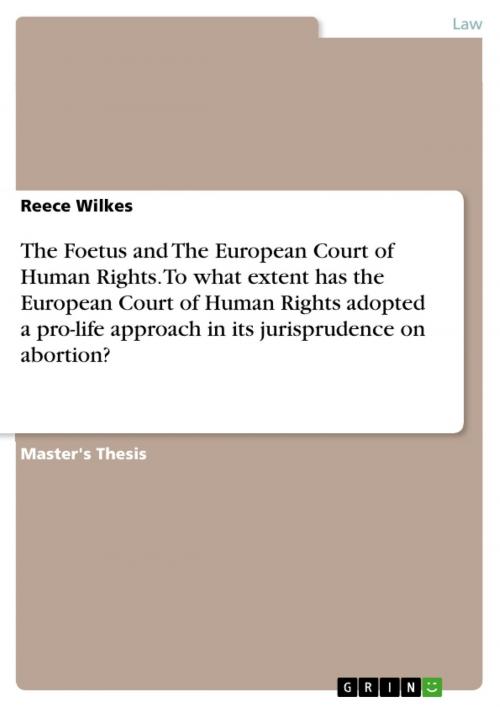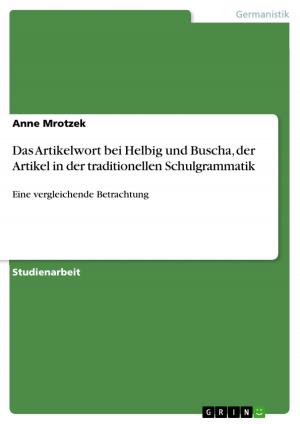The Foetus and The European Court of Human Rights. To what extent has the European Court of Human Rights adopted a pro-life approach in its jurisprudence on abortion?
Nonfiction, Reference & Language, Law, International| Author: | Reece Wilkes | ISBN: | 9783668615915 |
| Publisher: | GRIN Verlag | Publication: | January 18, 2018 |
| Imprint: | GRIN Verlag | Language: | English |
| Author: | Reece Wilkes |
| ISBN: | 9783668615915 |
| Publisher: | GRIN Verlag |
| Publication: | January 18, 2018 |
| Imprint: | GRIN Verlag |
| Language: | English |
Master's Thesis from the year 2017 in the subject Law - European and International Law, Intellectual Properties, grade: Merit, , course: International Law, language: English, abstract: The issue of abortion has always remained a taboo, not only socially but many legal systems have different attitudes towards it. With the creation of the European Convention on Human Rights and a Court of last resort to deal with alleged breaches by the State came the expectation that it had to deal with this pertinent issue due to States refusing to legalise abortion or limiting access to it. This paper considers the extent to which the Courts jurisprudence has adopted a pro-life approach and if so, why. The paper reveals that there are competing interests, namely between three parties: The foetus, the woman and the State and that the Court has had to balance its judgements carefully, depending on the circumstances of each case, without intruding on a woman's right to privacy under Art 8. It concludes that the Court has tried to stay as neutral as possible when dealing with cases on abortion, presumably understanding the contentions that would be raised if it is overly eager to appease one party over the other. This necessitates a new legal theory which is necessary due to the competing interests of each party over the other. Contained within the paper, a new legal theory named 'The Triad of Rights' is created which shows how women's rights, foetal rights and State rights are unable to be dissociated from each other on the issue of abortion, indicating why the Court tries to stay as neutral as possible.
Legal interests: * Slander; libel; defamation cases * Human rights * Rule of law * Tort law * Criminal law * Vicarious liability
Master's Thesis from the year 2017 in the subject Law - European and International Law, Intellectual Properties, grade: Merit, , course: International Law, language: English, abstract: The issue of abortion has always remained a taboo, not only socially but many legal systems have different attitudes towards it. With the creation of the European Convention on Human Rights and a Court of last resort to deal with alleged breaches by the State came the expectation that it had to deal with this pertinent issue due to States refusing to legalise abortion or limiting access to it. This paper considers the extent to which the Courts jurisprudence has adopted a pro-life approach and if so, why. The paper reveals that there are competing interests, namely between three parties: The foetus, the woman and the State and that the Court has had to balance its judgements carefully, depending on the circumstances of each case, without intruding on a woman's right to privacy under Art 8. It concludes that the Court has tried to stay as neutral as possible when dealing with cases on abortion, presumably understanding the contentions that would be raised if it is overly eager to appease one party over the other. This necessitates a new legal theory which is necessary due to the competing interests of each party over the other. Contained within the paper, a new legal theory named 'The Triad of Rights' is created which shows how women's rights, foetal rights and State rights are unable to be dissociated from each other on the issue of abortion, indicating why the Court tries to stay as neutral as possible.
Legal interests: * Slander; libel; defamation cases * Human rights * Rule of law * Tort law * Criminal law * Vicarious liability















